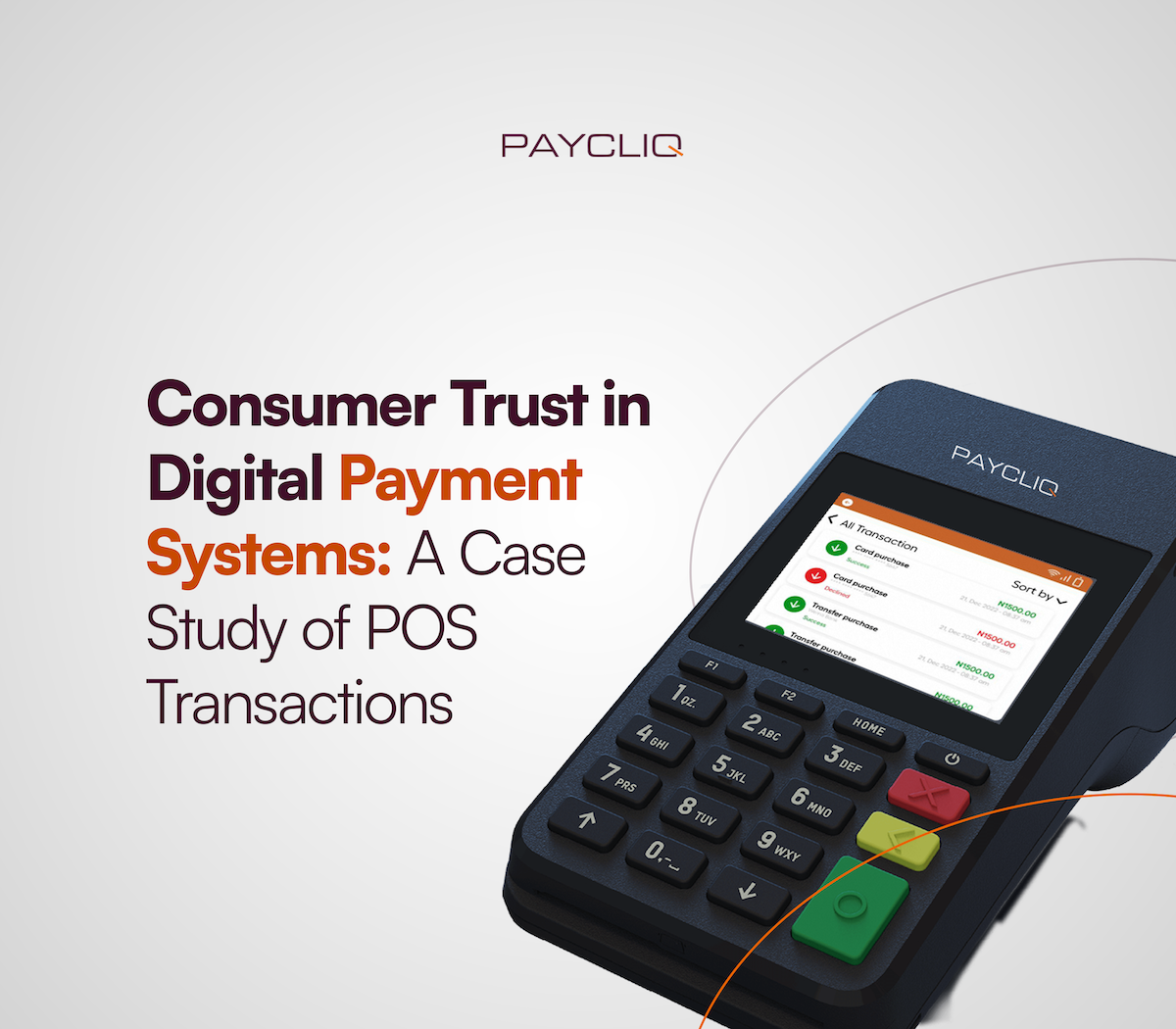As digital technology continues to reshape the financial ecosystem, Point-of-Sale (POS) transactions have become a vital link between customers and financial institutions. In developing countries like Nigeria, POS systems are more than just payment devices. They are gateways to financial inclusion, especially in rural and underserved urban areas.
However, while the adoption of digital payments has increased, consumer trust remains a major barrier to widespread usage. This post looks at the key factors influencing consumer trust in POS transactions and outlines actionable strategies to build and maintain it, backed by recent insights and real-world observations.
Factors That Influence Consumer Trust
A lot of things influence consumer trust in digital payments, and they include;
1. Security of POS Systems
Consumers expect their sensitive financial data to be safe when using POS systems. Unfortunately, recurring news of card fraud, unauthorised withdrawals, and other security breaches undermines that confidence. Robust encryption, secure user authentication, and active fraud monitoring are needed to restore and retain consumer trust in e-payments.
2. Reliability of Transactions
Failed transactions, system downtimes, and slow fund reversals have become common pain points. These reliability issues frustrate users and discourage them from opting for POS or digital payments, especially when cash remains a faster, risk-free alternative.
3. Customer Support Responsiveness
Many users experience issues with POS payments but have no clear or immediate support channel to resolve them. The lack of responsive, accessible support systems creates anxiety and leads customers to avoid digital payment options altogether.
4. Transparency and Clear Communication
Hidden charges or unexplained deductions are key triggers for customer distrust. Businesses should display fees and issue instant receipts to reduce customer dissatisfaction and complaints.
Case Insight
Some retail stores in Ibadan reported a notable decline in POS usage after customers experienced failed transactions with delayed or unresolved chargebacks.
For example, in a popular stall in Ibadan, a customer had purchased #31,000 worth of provisions. After transferring the funds, the store did not receive the money. Though the customer was debited, the store delayed him for more than 30 minutes and allowed him to go only when he called someone to help pay on his behalf. After two days, the store returned to the customer to confirm receipt of his transaction. The reversal took 14 working days after several calls to the store and the financial institution.
The same store is notorious for having a long line no matter the day of the week or time. Their POS terminal is reported to be slow, and transactions have declined. These experiences went viral on social media. Many customers stopped shopping at that mall because of skepticism and damaged confidence.
How to Build and Sustain Trust in E-Payments
To strengthen customer trust in POS systems and digital payments, industry stakeholders like banks, fintechs, agents, and regulators must collaborate to implement the following measures:
1. Strengthen Regulatory Oversight
Stricter enforcement of transaction and data protection policies by institutions such as the Central Bank of Nigeria can help deter fraud and protect consumer rights.
2. Educate Users on Safe Transaction Practices
Online and in-person awareness campaigns can empower users with the knowledge they need to spot fraud attempts and handle issues like failed transactions.
3. Enhance Staff Training
Retail staff should be trained to offer technical support and good customer service. They must handle issues professionally. It goes a long way to maintaining consumer trust.
4. Embrace Transparency in Pricing and Deductions
Inform consumers of all applicable fees upfront. Receipts should be issued for every transaction, and automated alerts should confirm all deductions.
How Paycliq Supports Trustworthy POS Operations
Paycliq provides a secure and reliable POS platform designed to meet the needs of both merchants and consumers. Its strong fraud-prevention protocols and transparent pricing model help users transact with confidence.
In addition, Paycliq offers round-the-clock customer support and detailed transaction histories, enabling merchants to resolve disputes and encourage long-term customer satisfaction.
Conclusion
Consumer trust is the cornerstone of successful digital payment adoption. As Nigeria continues to push for a cashless economy, the financial ecosystem must prioritise safety, reliability, and transparency in POS operations. Businesses can take advantage of dependable solutions like Paycliq to access the full potential of digital payments and build lasting relationships with their customers.



What do you think?
It is nice to know your opinion. Leave a comment.